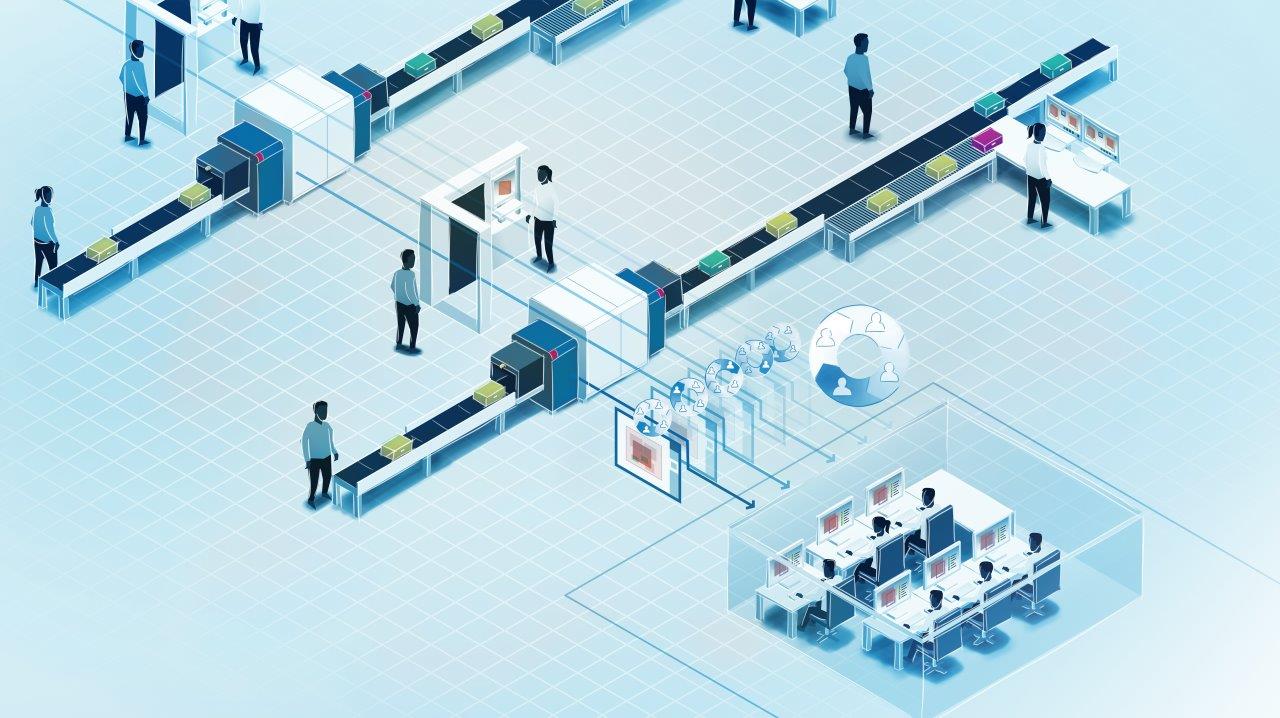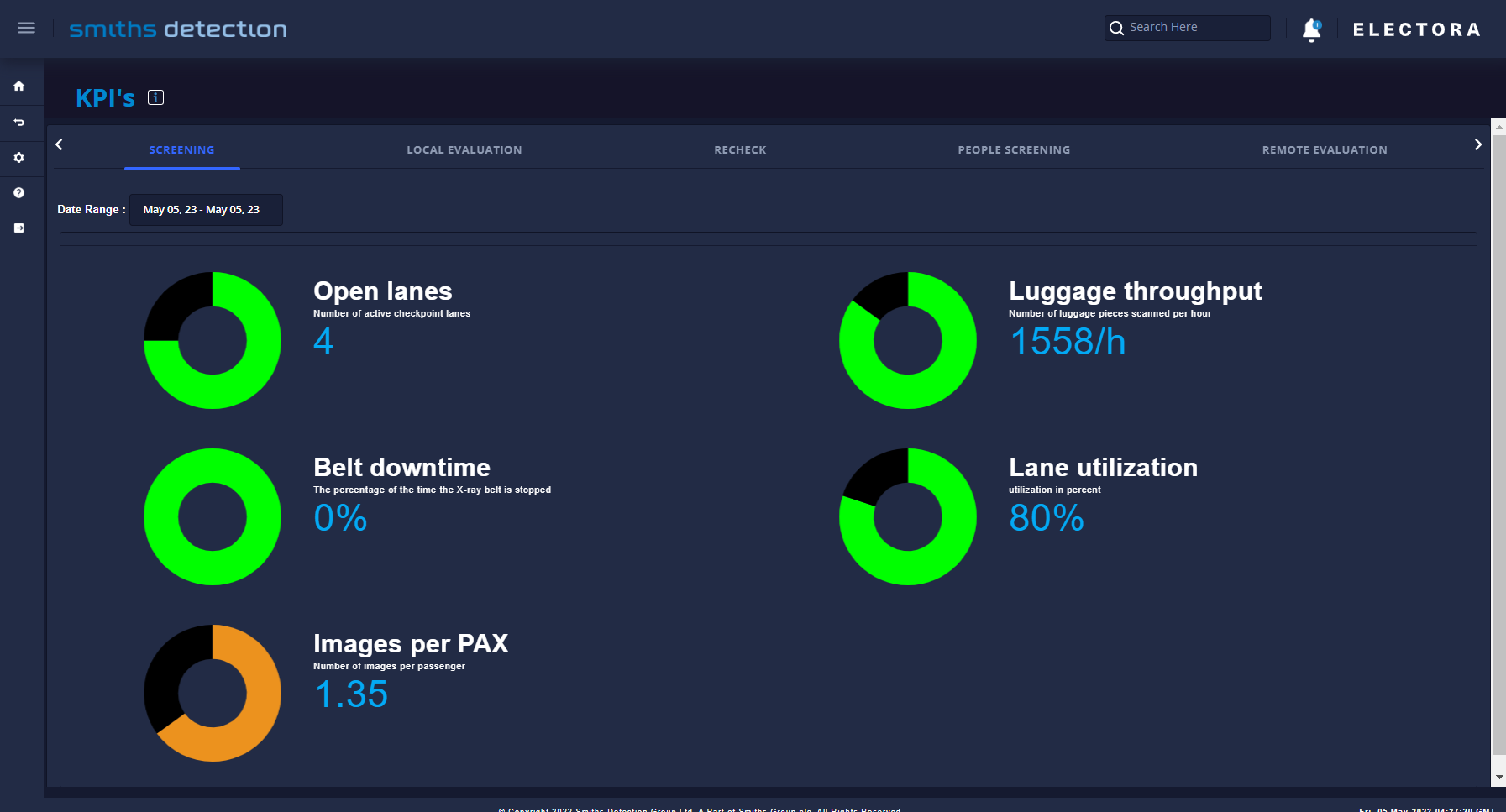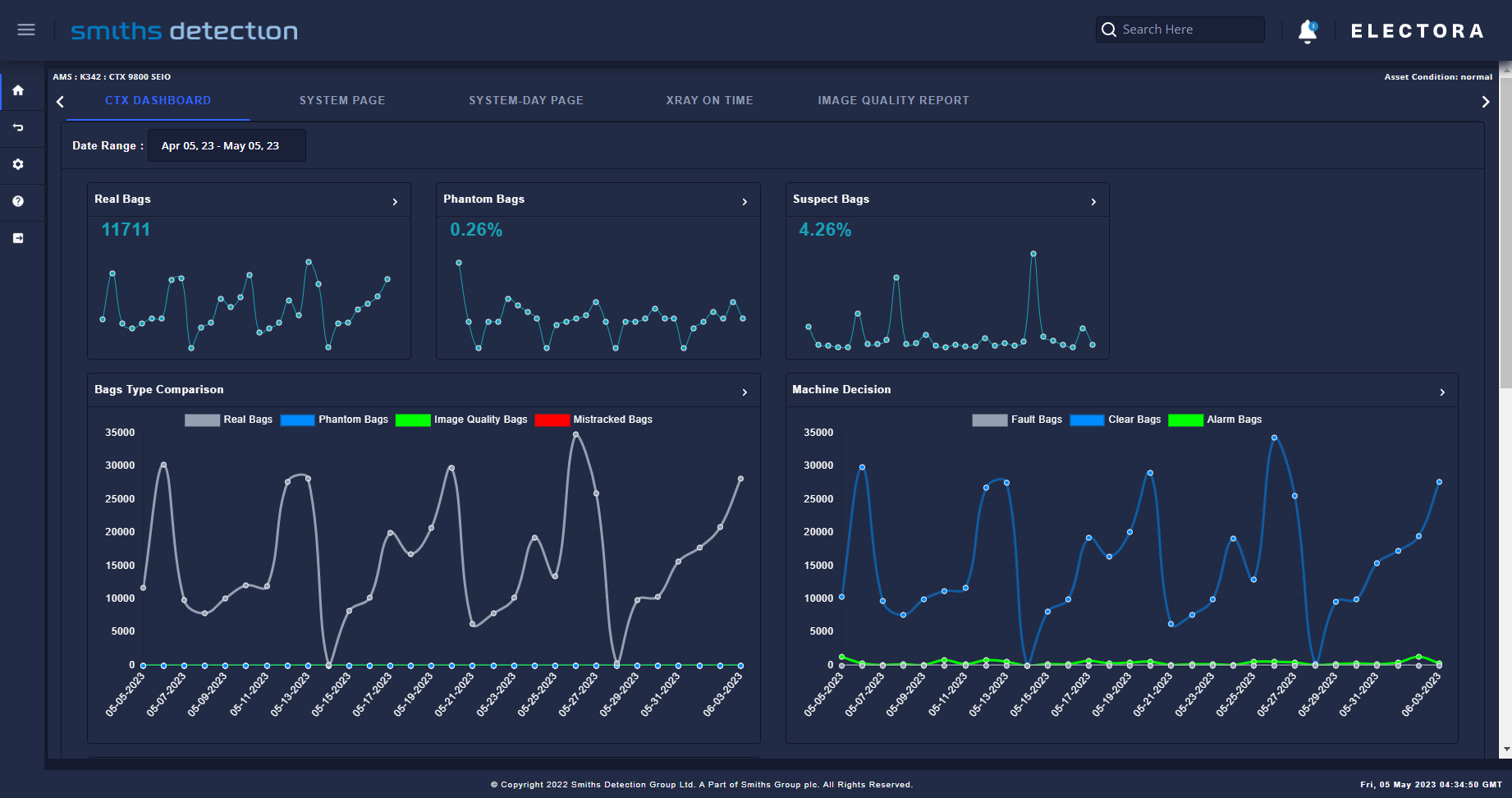Digital Innovations at the Passenger Checkpoint Taking Performance and Efficiency to New Levels
- 2023-05-08

Cymoril Métivier
Integrated, data-driven and open security solutions are helping airports around the world transform passenger checkpoints and achieve the highest levels of security and operational efficiency. Driven by artificial intelligence, automation and connectivity, new digital technologies push productivity up and bring costs down - and ultimately improve passenger experience.
Screening equipment is at the heart of every checkpoint and, for example, an advanced computed tomography (CT) X-ray scanner together with automatic tray return can alone accelerate the screening process, increase throughput, and make better use of airport resources. Adding digital solutions such as data analytics, AI, networking and centralised or remote screening delivers exciting new capabilities and is proven to boost efficiency further and take safety and passenger experience to completely new levels.
Connectivity & Integration
Increase productivity by creating an intelligent, open network

Connectivity & integration applications enable connecting various screening devices into one network, allow intelligent workflow control and support centralised image evaluation as well as data aggregation.
Although centralisation is not a new concept in Hold Baggage Screening (HBS) as it has been in use for more than 15 years, remote image analysis for checkpoint screening is a relatively new application. Simply, X-ray images of all scanners of a checkpoint are safely sent to a central remote location through networking. This enables efficient analysis as operators can focus on the image evaluation and alarm resolution in the calm environment away from the checkpoint and make faster and more accurate decisions.
Central image evaluation also allows for multiplexing images where all images are analysed by a group of operators. With multiplexing, resources can be strategically deployed to meet shifting demand. It facilitates a flexible ratio of operators to lanes so resources can be optimised to meet the peaks and troughs of demand and individual operational objectives. As images are shown to the first available analysts, this removes the need to pause conveyors during the inspection process and increases operational efficiency.
The same principle can be applied between airports, regions and even continents using wide-area-networks (WAN). WAN allows several airports to be connected across long distances.
Advancing centralised image processing will be one of the stimulants in bringing Open Architecture (OA) into airport systems. Integrating hardware, software and algorithms from different manufacturers/suppliers will support multiplexing across several security lanes, airports and mixed fleets.
Advanced Detection
Augment security outcomes
.png)
Advanced detection applications increase security outcomes of your operations by delivering additional detection and image interpretation capabilities, making it easier to identify more of what could be passing through your operation.
Deep learning is a technique of machine learning which imitates the way the human brain processes data and uses neural networks to identify patterns for use in decision-making. These Artificial intelligence techniques have led to the development of smart, adaptable algorithms enabling automatic object recognition in aviation security.
The vast amounts of data collected on prohibited items during the screening process can be used to train algorithms to achieve a highly accurate rate of automatic prohibited items detection through object recognition. This will help make the aviation ecosystem more secure by keeping items such as weapons, sharps (e.g., knives & scissors), ammunition and blunt objects out of plane cabins, without interrupting the flow of people and bags.
This technology improves security and efficiency by supporting image analysts, reducing training for new operator recruits as well as human error as algorithms don’t get tired and always remain impartial. Furthermore, these algorithms can support a more automated screening process. They will be key to the development of alarm-only viewing of X-ray images, a concept which has already been well proven in hold baggage screening. The introduction of the new ECAC standards for the certification of APIDS (Automated Prohibited Items Detection Systems) algorithms will soon bring alarm-only viewing to the checkpoint. The main benefit is a significant reduction in the number of images manually inspected so, when combined with automated lanes and centralised screening, this will greatly improve resource utilisation.
Smiths Detection’s iCMORE APIDS will be at the forefront of these advances, helping to increase operational efficiency and throughput whilst also reducing OPEX and facilitating resource planning.
Data & Analytics
Improve operational efficiency through data insights

Uncovering operational insights using data and analytics has proven to improve operational efficiency, decision-making and resource allocation.
With international borders re-opened and travellers reaching pre-covid figures, the increased volume of passengers and baggage requires checkpoint screening operations at faster pace. Real time operational data obtained from components across the entire screening area generate a full range of invaluable insights, making it easy to monitor performance and system status metrics in real-time. This is needed for faster, more informed decisions on performance, resource optimisation, forward planning and general administration. It identifies opportunities to automate, streamline and generally reduce bottlenecks and improve productivity.
Operational Management
Uplifting system performance through health status monitoring
Data and analytics captured and stored on operations application can provide a more complete view of your equipment’s health. This enables earlier implementation of preventive maintenance, which increases up-time, reduces interruptions, and improves the lifetime of your investment.
The increased passenger numbers at the checkpoint require screening systems to operate at peak performance for longer periods. Hence, real-time health monitoring of equipment is crucial to airport operational efficiency and pleasant passenger experience.
The operational management also features vital system management functionalities for the central and easy administration of security operations, all of which support you in ensuring compliance with IT security, privacy, and other regulations.
A seamless platform for security operations

A one-stop security management platform which supports third party software and hardware integration will provide greater convenience and accessibility to customers with a complex and fragmented combination of multi-vendor components within their security operations. Customers will benefit from the ability to access different vendors devices, datasets and applications through one single, scalable and cybersecure management platform. This saves time and transforms security operations, while ensuring regulatory compliance and reliability.
Smiths Detection’s security management platform ELECTORA is tailored to meet the requirements of specific operations from a suite of applications that enable oversight of operations, including equipment health monitoring; as well as real-time data insights for faster decision making and resource allocation on a single-window, cloud-ready platform.
Propelling Open Architecture into the future of aviation security
Smiths Detection has the largest, global installed base of CT checkpoint scanners and leverages 70 years of experience in developing both checkpoint solutions and algorithms to actively work with industry bodies in the development of OA.
The future of aviation security will be driven by data, differentiated screening and the use of integrated sensors and devices from multiple providers. It will require open equipment interfaces and common data formats with an oversight mechanism to provide assurance on aspects such as technical standards, certification, and liability.
OA certainly has the potential to transform security screening and collaboration is at the heart of open architecture; only together we can make aviation safer and more efficient. Which is why Smiths Detection recently launched the Ada Initiative to drive forward the development and responsible implementation of OA. Through the Ada Initiative, Smiths Detection is working with a growing number of stakeholders to ensure a responsible, reliable, and practical interoperability of technologies, and to deliver ever higher standards of safety, infosec, and operational benefit to all users.
A global leader in threat detection and security solutions, Smiths Detection provides all software, equipment and support from one source and works with you from design to integration and service - ensuring you receive the optimum solution for your operation.
For more information on Open Architecture in Aviation Security, click here.
---------------------------------------------------------------------------------------------------------------------------------------------
This article was provided by a third party. The views expressed in the article do not represent or reflect the views of ACI Asia-Pacific. Inclusion of any link to other external sites does not imply endorsement by ACI Asia-Pacific of those sites and ACI Asia-Pacific shall not be held responsible or liable for any content, advertising, products or other materials on or available from such external resources and sites.
- CATEGORY
- COUNTRY / AREA
- United Kingdom
- AUTHOR
- Cymoril Métivier, Digital Market DirectorSmith Detection







